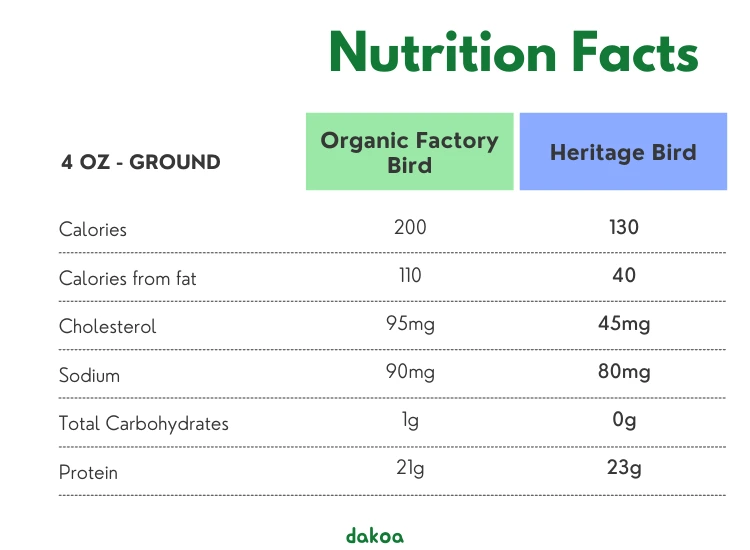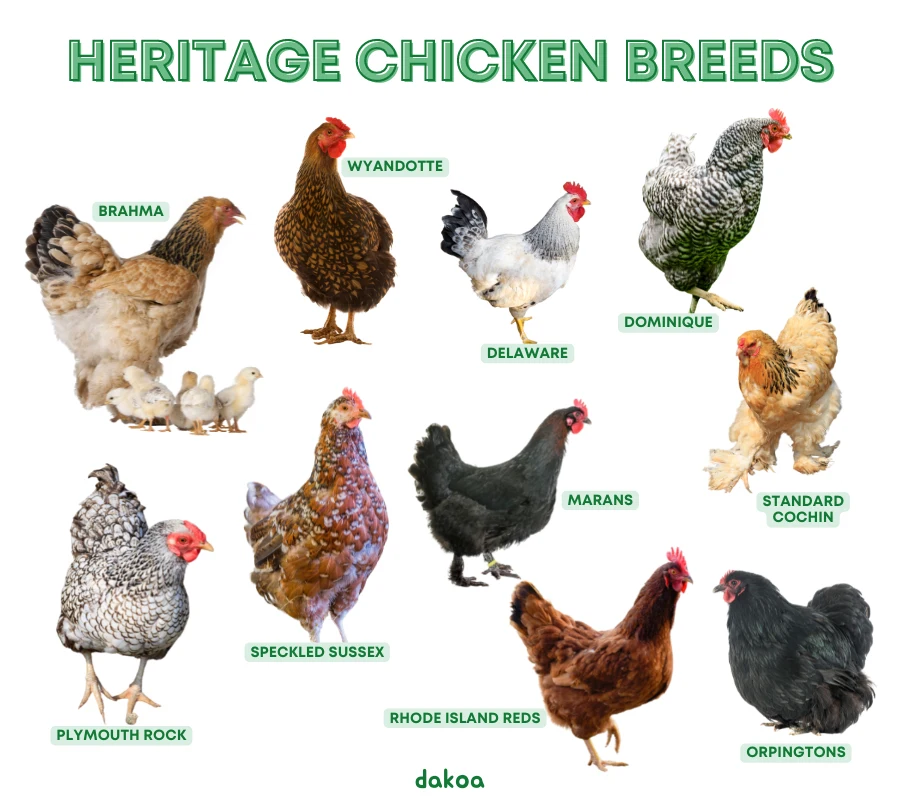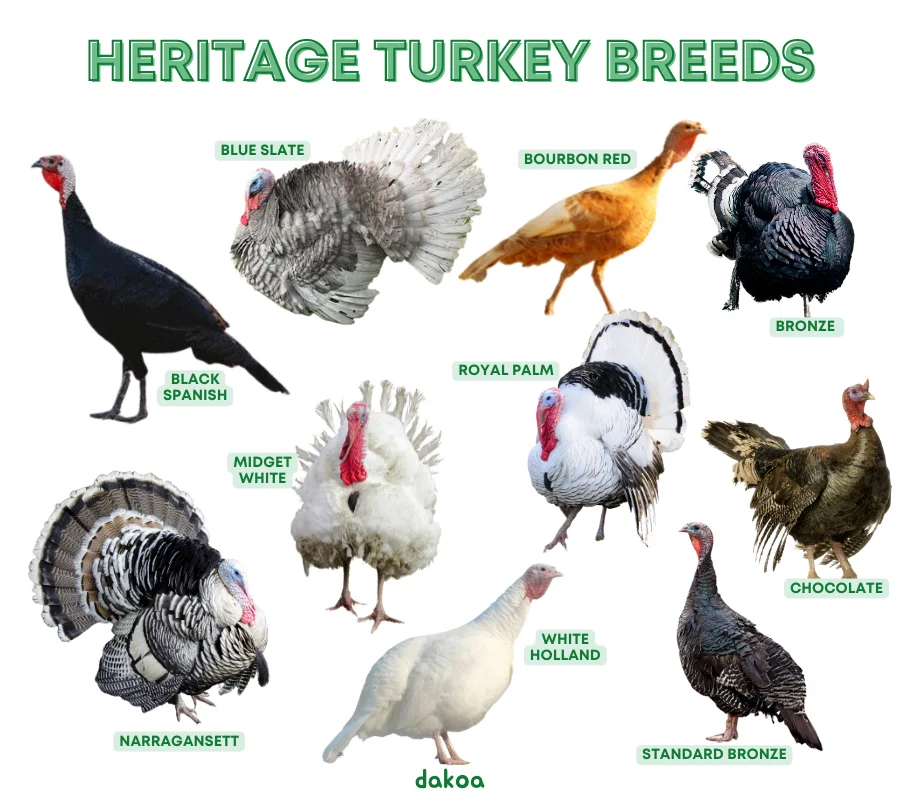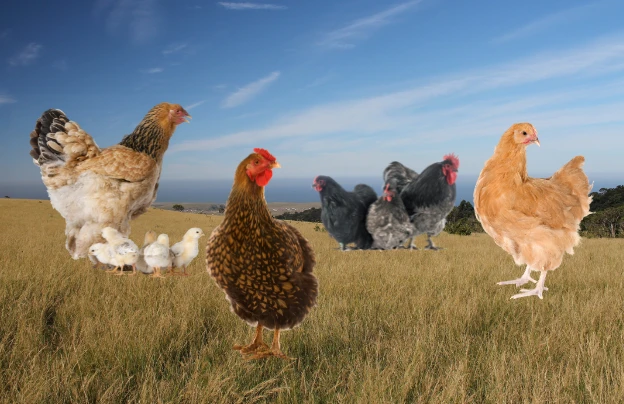More and more people are becoming interested in raising their own livestock and produce to be able to have more control over their food quality.
Raising livestock (and produce) yourself means you’re eating healthy without the use of medications, pesticides, herbicides and other harmful substances commonly used in commercial/industrial farming.
And these days, there’s the matter of inflation to consider.
In 2019 the average price of a pound of chicken was $1.50. Skip to 2022, and you’re paying an average price of $1.88 for that same pound of lean protein. That’s a little more than a 25% increase!
MOVE FORWARD BY LOOKING BACK
Today, we’re turning to the methods the farmers of the past used.
We’re looking into the varieties of produce and the breeds of animals that were developed and used by those farmers several generations ago.
First look at the heritage breeds of chickens and turkeys when you’re choosing your homesteading livestock.
To keep it simple, I’ve included some of the benefits these breeds will provide when compared to the hybrid breeds used in commercial farming down below.
Yes, there are a few disadvantages to raising heritage breeds, but for a small backyard flock or homestead just wanting birds with the more robust health and flavor of birds from back in the day, heritage breeds are the way to go.
Here are the benefits, as well as some disadvantages, that raising these breeds can have.
- Heritage poultry are stronger and more disease resistant than the hybrid breeds. They have a longer lifespan and will lay eggs up to twice as long as hybrids.
- Heritage breeds are broody (this means they instinctively will sit on their eggs and raise their chicks themselves). This will make it easier on you to increase the size of your flock without having to incubate and raise the chicks yourself or buy new chicks from a hatchery. You will have to remove the rooster or tom and replace it with one from a different bloodline regularly to keep the genetics of the offspring strong.
- Heritage breeds are more adaptable to a wider variety of climates. There are breeds that were developed to live in regions that are hot and some that thrive better in cooler regions, so you can find the breed that will fit your needs as well as your climate.
- Heritage breeds are better at foraging for foods in their environment, like insects, seeds, grasses and plants. This will help reduce (but not eliminate) the amount of feed they need to consume, which saves you money, and it also enhances the flavor of the meat and eggs they produce.
- Heritage breeds are more beautiful, they come in a variety of colors and patterns, which is a nice change from the basic white of the poultry seen in commercial farming. Some of the feathers from heritage breeds are sought after for crafts and fly fisherman that tie their own flies.
- Heritage poultry have more dark meat that is richer and more flavorful than hybrid birds. Great for those who love dark meat!

Now, here are the disadvantages of heritage poultry:
- They grow slower than the hybrids.
- Produce fewer eggs (heritage-average 200-250 per year, hybrid-up to 350 per year).
- Don’t have the larger breasts that the hybrids have, which means less white meat for those who prefer it.
- Require more feed to reach market weight due to the slower growth rate.
The heritage poultry breeds may have a few disadvantages, but their benefits greatly outweigh them.
Consider giving these hardy birds a chance to prove their importance and to help maintain their very existence, as many of these breeds are in danger of extinction.
Because of this, it’s important for even the smallest poultry keeper to raise these birds.
More To Discover
- Raise Guinea Fowl in Your Backyard for Lean, Dark Meat & Healthy Eggs Year Round
- After Shutting Down 4 Plants, Tyson Foods Debuts Advanced, Automatic $300M Poultry Processing Facility
- Federal Regulators Tackle Meat Industry Monopolies with New Rules
- 6 Types of Bee Hives You Should Know: Exploring Advantages, History, Cost, and Common Usage
You can even decide to keep a separate small flock of hybrids if you want to make sure you’re able to meet your families need for meat and eggs, but those heritage birds might just prove to be your favorites.
You can’t rush a good thing!
LIST OF HERITAGE POULTRY BREEDS
Top 10 Heritage Chicken Breeds
- Brahma
- Delaware
- Dominique
- Marans
- Orpingtons
- Plymouth Rock
- Rhode Island Reds
- Speckled Sussex
- Standard Cochin
- Wyandotte

Top 10 Heritage Turkey Breeds
- Black Spanish
- Blue Slate
- Bourbon Red
- Bronze
- Chocolate
- Midget White
- Narragansett
- Royal Palm
- Standard Bronze
- White Holland
















